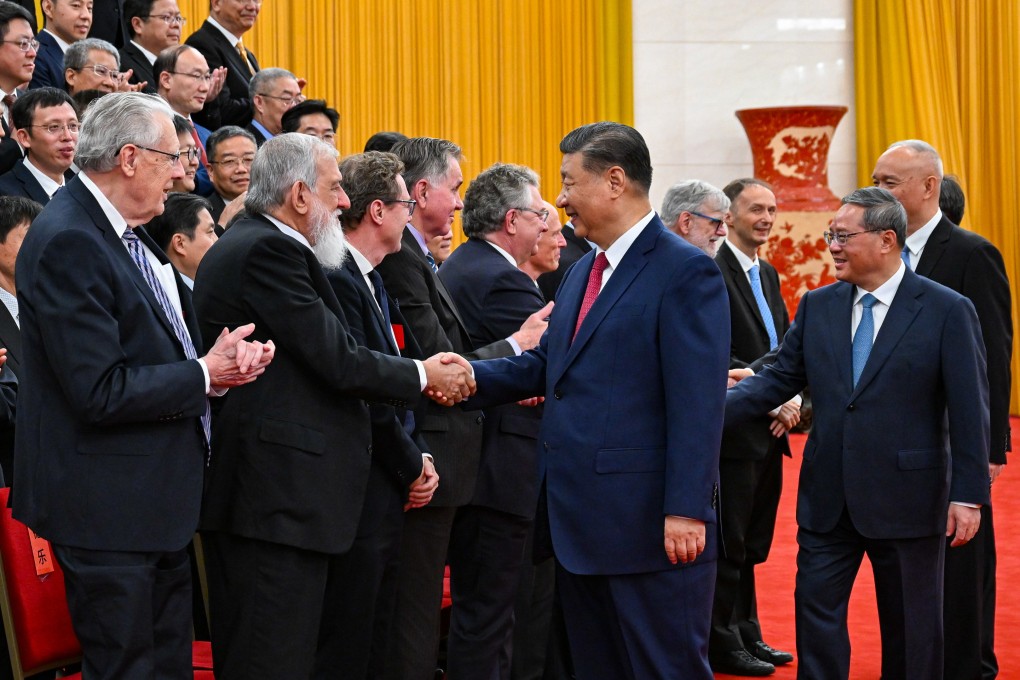Advertisement
Xi Jinping calls for Chinese scientists to step up innovation in hi-tech ‘battlefield’
- President tells science and tech conference the focus should be on achieving breakthroughs in ‘bottleneck’ technologies for six key areas
Reading Time:2 minutes
Why you can trust SCMP
40

Jane Caiin Beijing
President Xi Jinping has called on Chinese researchers to step up innovation in six key areas of the hi-tech sector – which he called a “main battlefield” in superpower rivalry – to help secure the country’s supply chain.
Addressing a science and tech conference in Beijing on Monday, Xi said the focus should be on achieving breakthroughs in “bottleneck” technologies for integrated circuits, industrial machine tools, basic software, advanced materials, scientific research instruments and seed sources.
“Technological revolution is intertwined with the wrestling of superpowers, with the hi-tech sector becoming the main battlefield,” Xi was quoted by state news agency Xinhua as saying.
Xi said China had made remarkable scientific progress in areas ranging from space to deep sea exploration. But he said the capacity for “original innovation” was relatively weak, some core technologies were constrained by other countries, and there was a skills shortage.
“We must have a greater sense of urgency,” he said. “We must step up innovation in order to occupy the commanding heights of the tech competition for future development.”

It comes as Beijing is locked in a tech war with the West, led by Washington. The US has blocked the sale of advanced semiconductors, and the technology and know-how to make them. Advanced chips are essential for the development of artificial intelligence technology that could bring revolutionary changes to industry, services and the military.
Advertisement